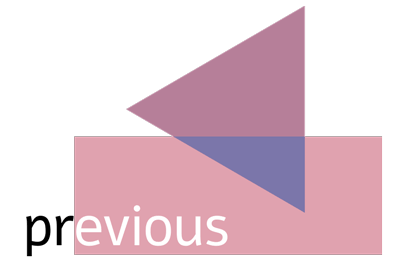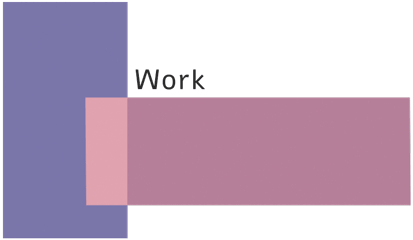
David: The King and the Sheep // דוד: המלך והכבשה
צילום סטילס: נטשה שחנס
צילום סטילס: רפאל שחרי
David abuses his authority and takes Bathsheba without her consent. When Bathsheba discovers she’s pregnant, David does everything in order to hide the injustice and causes Uriah to get killed in the battlefield. Everyone around David is silent and complicit, but as the plot progresses they expose the injustice and confront him on his deeds.
דוד מנצל את סמכותו ולוקח את בת שבע ללא הסכמתה, כשבת שבע נכנסת להריון, דוד עושה הכל על מנת להסתיר את העוולה וגורם לאוריה להיהרג בשדה הקרב. הדמויות הסובבות את דוד שותקות ומשתפות איתו פעולה, אולם עם התפתחות העלילה הן חושפות את העוולה ומתעמתות מולו על המעשים שעשה.

צילום סטילס: דנה בר סימן טוב
Process
Like in the children’s game “Hot-Cold”, the process was conducted through seeking and identifying: whenever we knew that the material we’re working with becomes “warm”, ignites us, and turns us more involved, our work focused on polishing it using the heat’s source.
The need to reveal and tell about the crime committed to Bathsheba, the sheep, the victim who was hurt by abuse of power and authority, stands in contrast with the layers of concealment that were created by society for generations in order to defend David, justify him, and claim that “whoever says David sinned is nothing but wrong” (the Talmud).
Society’s difficulty, as well as that of the victim, to acknowledge the injury serve the abuser. As long as the deed is hidden it allegedly did not take place, and there is no need to account for it.
The struggle against the wish to silence the victim, and the insistence to reveal the injustice, became a struggle on the very legitimacy of the play and its topics. The play’s reception was complicated. Alongside supportive reactions, others opposed the play and were furious with it. We were often personally scorched by the flames that the topic sparked around us.
על התהליך
כמו במשחק הילדים ״חם קר״ תהליך העבודה נעשה בדרך של גישוש וזיהוי. כשהחומר התחמם, הצית אותנו והפך אותנו למעורבים יותר, התמקדנו בליטוש החומר אל מול מקור החום.
הצורך לחשוף ולספר על העוול שנעשה לבת שבע, הכבשה, הקורבן, שנפגעה מניצול יחסי מרות וכוח, מנוגד לעטיפות ולקליפות, שנבנו לאורך השנים על ידי החברה. החברה יצאה להגנתו של דוד, חיפשה לו צידוקים ונאחזה בטענה ש״כל האומר דוד חטא אינו אלא טועה״.
הקושי של החברה ובתוכה גם של הקורבן להביט בעיניים למעשה הפגיעה משרת את הפוגע. כל עוד המעשה מוסתר הוא לכאורה לא קרה ואין צורך לתת עליו דין וחשבון.
המאבק בהתמודדות עם הרצון להשתיק וההתעקשות על הרצון לחשוף את העוולה, הפכו למאבק על עצם זכותה של היצירה להתקיים ועל הנושאים שבהם תעסוק היצירה. תהליך התקבלות ההצגה היה מורכב וסבוך. לצד תגובות מעודדות ותומכות קיבלנו תגובות זועפות ומתנגדות. לא פעם נכווינו באופן אישי מהאש שהנושא העיר והלהיט סביבנו.
By: Inbal Lori and Brachi Lipshitz // Director: Brachi Lipshitz // Set and Costume Design: Yaara Zadok // Lighting Design: Zaki Kawasmi // Songs and Music: Daniel Kiczales // Movement: Aviv Eveguy // Producer: Rony Ohad // Actors: Avia Brosh, Meni Gross, Srulik Pniel, Galit Tzabari, Ofer Yerushalmi
מחזה: ענבל לורי, ברכי ליפשיץ // בימוי: ברכי ליפשיץ // עיצוב חלל ותלבושות: יערה צדוק // עיצוב תאורה: זקי קוואסמי // שירים ומוזיקה: דניאל קיצ׳לס // עיצוב תנועה: אביב אבגי // הפקה: רוני אוהד // משחק: אביה ברוש, מני גרוס, עופר ירושלמי, שרוליק פניאל, גלית צברי
Habama online Magazine
Beit Avi Chai Article
Saloona- Actress Avia Brosh tells about the show
"Yediot Yerushalaim" Article
Radio interview on Galaz, "Biluy Hayom"
Radio interview on ״Kan"
עיתונות
מגזין הבמה
כתבה באתר בית אבי
חיסלונה- השחקנית אביה ברוש בעקבות העבודה על ההצגה
כתבה ב"ידיעות ירושלים"
ראיון בגלי צה"ל, "בילוי היום"
ראיון ב"כאן תרבות״, "כאן תרבות"
״בידי המלך היינו בובות
פחדנו להיות
עצמנו
בואי ננסה משחק אחר
אחרי כל דבר שמישהו אומר
תשאלי שאלה
"האם את זה אני רוצה?״
מתוך השיר ״אוריה״
מילים: דניאל קיצ׳לס






